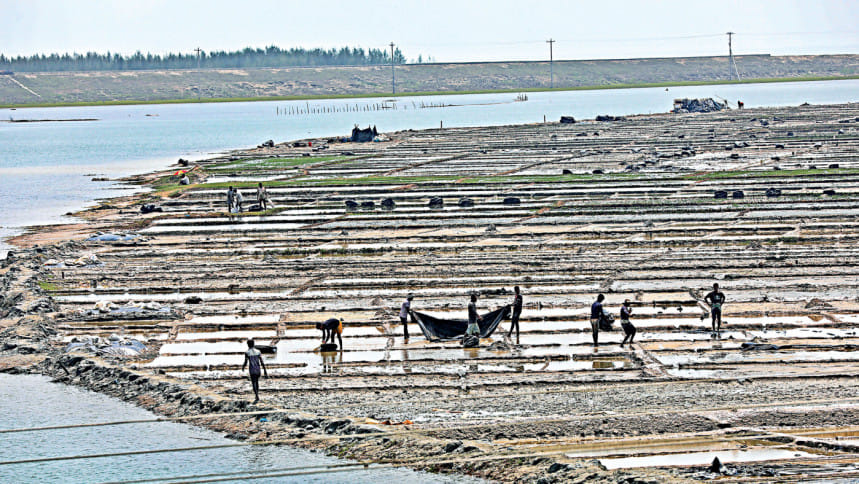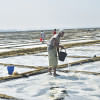BSCIC to set up salt research and training institute

The Bangladesh Small and Cottage Industries Corporation (BSCIC) has taken up a project to enhance local salt production so that the country becomes self-reliant in meeting its demand for the seasoning.
As per the project details, the "Bangabandhu Sheikh Mujibur Rahman Salt Research and Training Institute" will be set up on a 30-acre plot in Chowfaldandi union of Cox's Bazar.
Through the institute, the BSCIC aims to train up 7,250 farmers and 3,000 entrepreneurs on how to produce high-quality salt, creating employment for about 50,000 people in the industry.
Besides, unemployed people and women will get priority in receiving the training.
Through the institute, the BSCIC aims to train up 7,250 farmers and 3,000 entrepreneurs on how to produce high-quality salt
Having completed the feasibility study, which indicates the initiative will cost about Tk 194.13 crore, the BSCIC prepared a Detailed Project Plan (DPP) that will be forwarded to the industries ministry on May 25.
After that, the finalised project details will be sent to the planning ministry for approval.
As per the DPP, it will take about three years to implement the project starting from July 23, 2023.
BSCIC data shows that Bangladesh currently requires about 23 lakh tonnes of salt each year, but local production meets up to 80 per cent of this amount while the rest comes from imports.
For example, 18.30 lakh tonnes of salt were produced in the country last year.
However, local salt production reached a record-high this year with 18.39 lakh tonnes having been produced so far thanks to favourable weather.
With the production season running from November to May, the lack of rainfall during these months has resulted in the highest yields seen in six decades of commercial production, farmers say.
Other than household use, salt is mainly consumed by fisheries, livestock, food-processing, soap, paper and glass industries.
As such, the demand for salt among industries has increased significantly with the BSCIC estimating that the sector will require 12.10 lakh tonnes annually in the next five years.
Likewise, the overall demand for salt will reach 25.30 lakh tonnes at the same time.
Md Forhad Ahmed, general manager of the BSCIC's planning and research division, said they are hopeful of completing the project on time.
"Land acquisition usually causes delays but there have been no complications in this regard so far," he added.
The DPP shows that the BSCIC already owns 1.33 acres of the required land while 17.24 acres were leased from the district administration.
Ahmed, also the deputy commissioner of Cox's Bazar, then assured that the remaining 11.43 acres of land would be acquired from their private owners in the quickest time possible.
HM Shahid Ullah, president of the Bangladesh Salt Farmers Association, said this is a really good initiative as salt is currently produced using unhygienic techniques.
"So, it would be useful for farmers if the institute provides a modern method," he added.
The domestic salt industry, which offers opportunities for direct and indirect employment to about 15 lakh people, contributes some Tk 1,200 crore to the national economy every year.
At present, there are 34,553 farmers engaged in producing salt across 67,751 acres of land in Cox's Bazar and greater Chattogram.


 For all latest news, follow The Daily Star's Google News channel.
For all latest news, follow The Daily Star's Google News channel. 







Comments